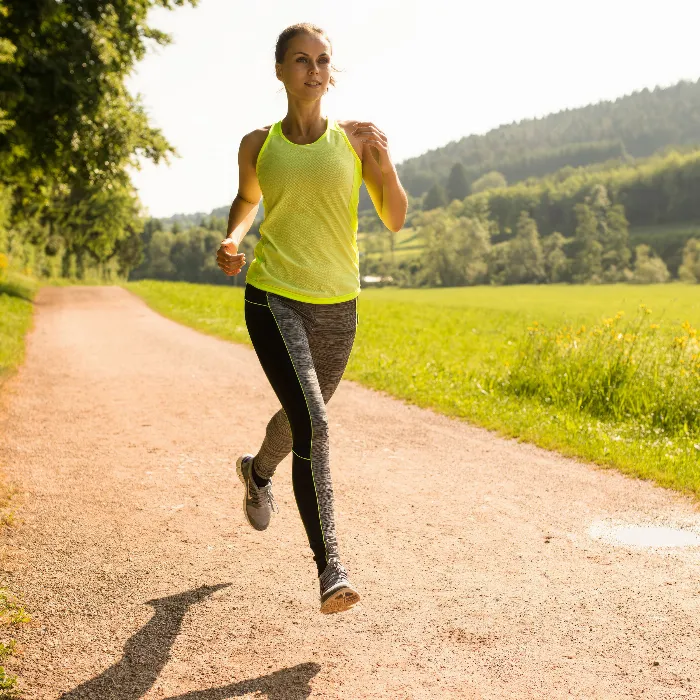The production of expressive sports photos requires not only skill in handling the camera but also a certain understanding of the lighting conditions. In this guide, you will focus on how to reduce distracting shadows in direct sunlight with a Aufheller and creatively manipulate the light. These techniques will help you capture athletic actions impressively.
Key insights
- The use of an Aufheller helps to optimize the lighting conditions in sunlight.
- Different positions and angles of the reflector affect the light and thereby also the image quality.
- Experimenting with different focal lengths and apertures helps to better showcase the subject.
Step-by-step guide
1. Preparation and location selection
Before you start photographing, make sure that the location is well chosen. Ensure that there is enough space for the athlete's movements and that the sun is at a favorable angle.
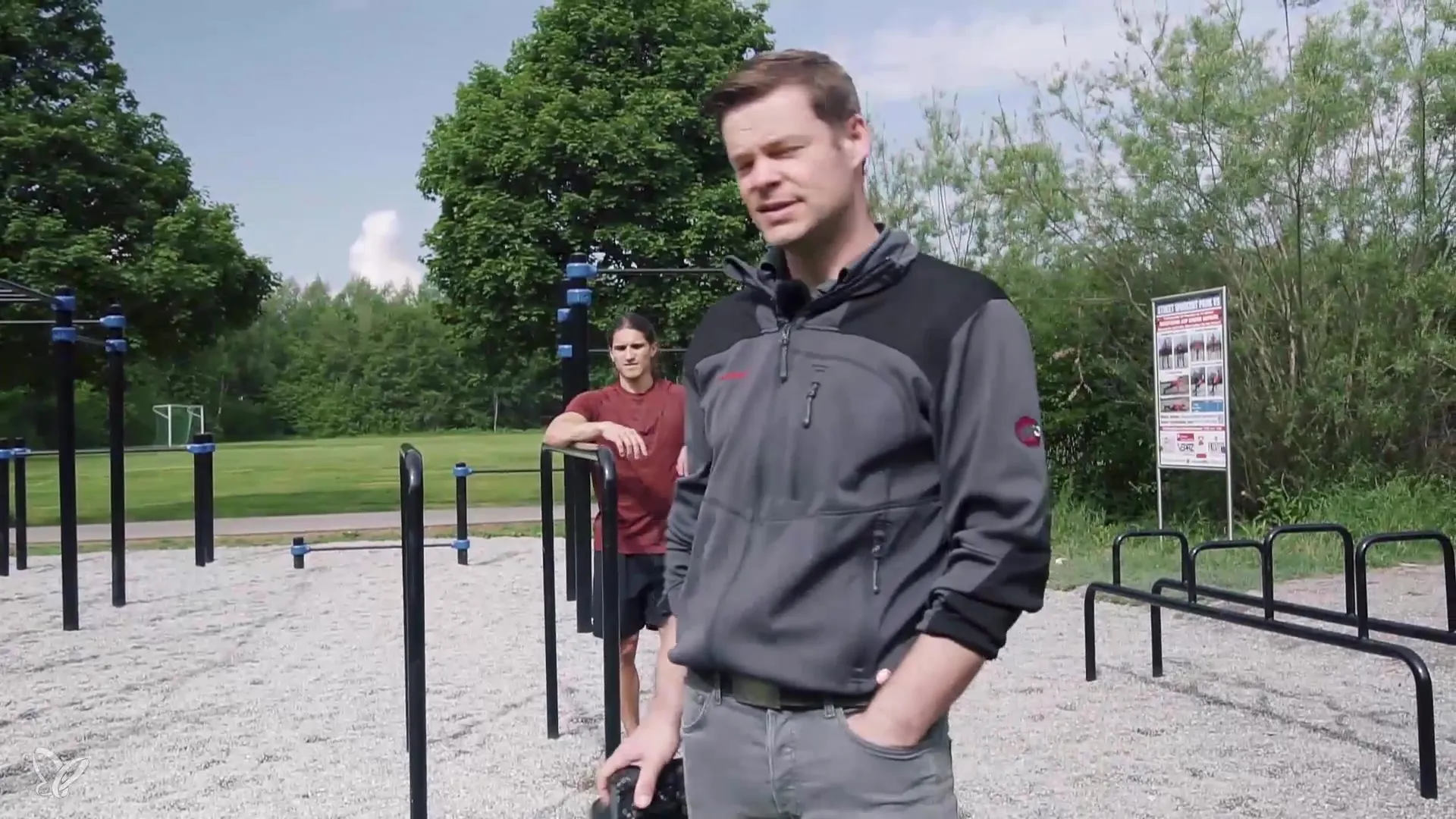
2. Motivation of the model
When positioning your model, in this case, Elias, explain to him what pose or movement you expect from him. Motivational exercises help to create natural poses and expressions.
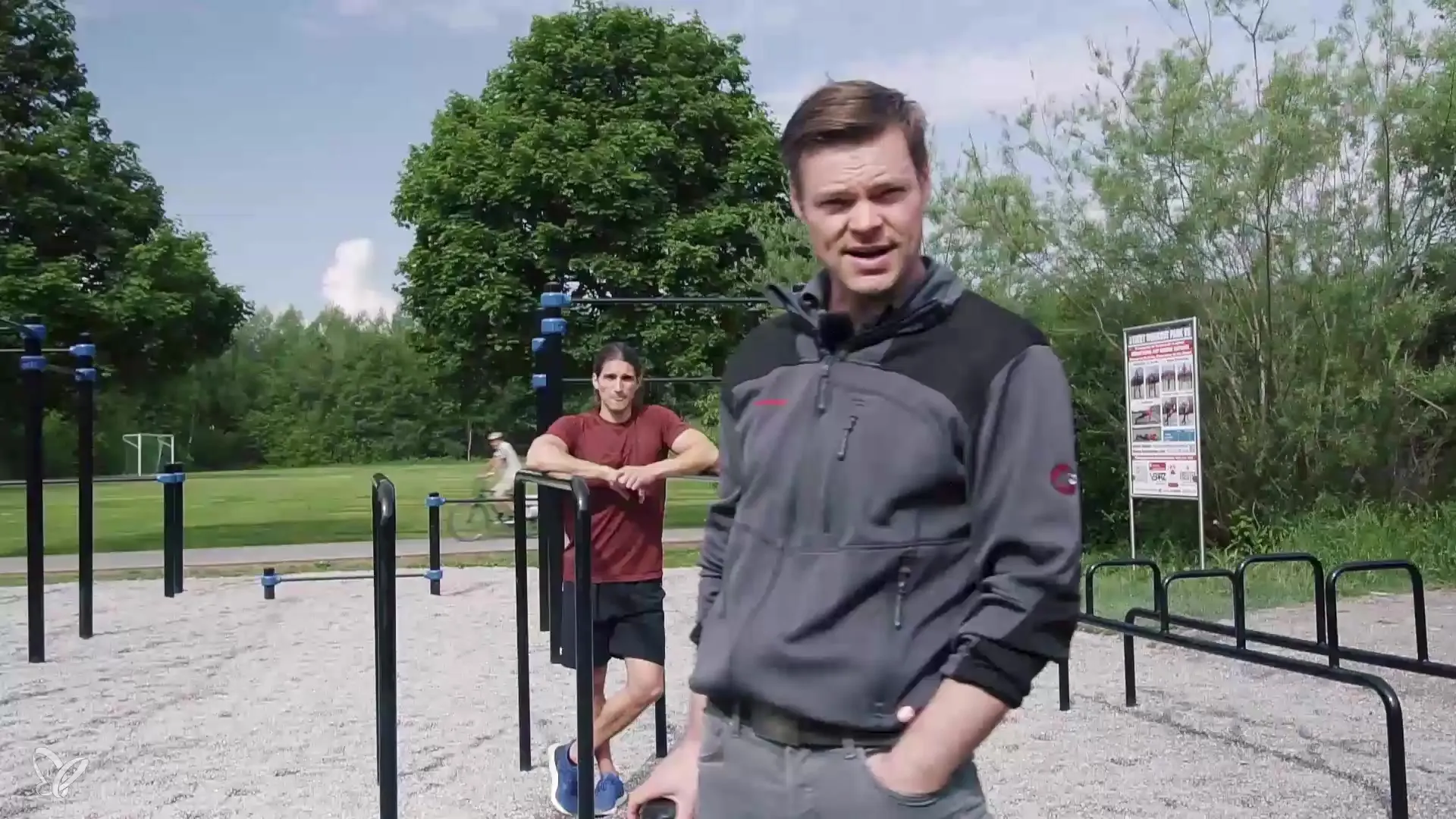
3. First test shots
Take some test shots to check the exposure settings. For example, you might choose an exposure time of 1/400 seconds, aperture 5.6, and ISO 200 to get a feel for the light.

4. Reflector positioning
Use the Aufheller to reflect light onto the athlete's face. Vary the position of the reflector to test different lighting conditions. Ensure that the light falls evenly on the face to avoid harsh shadows.
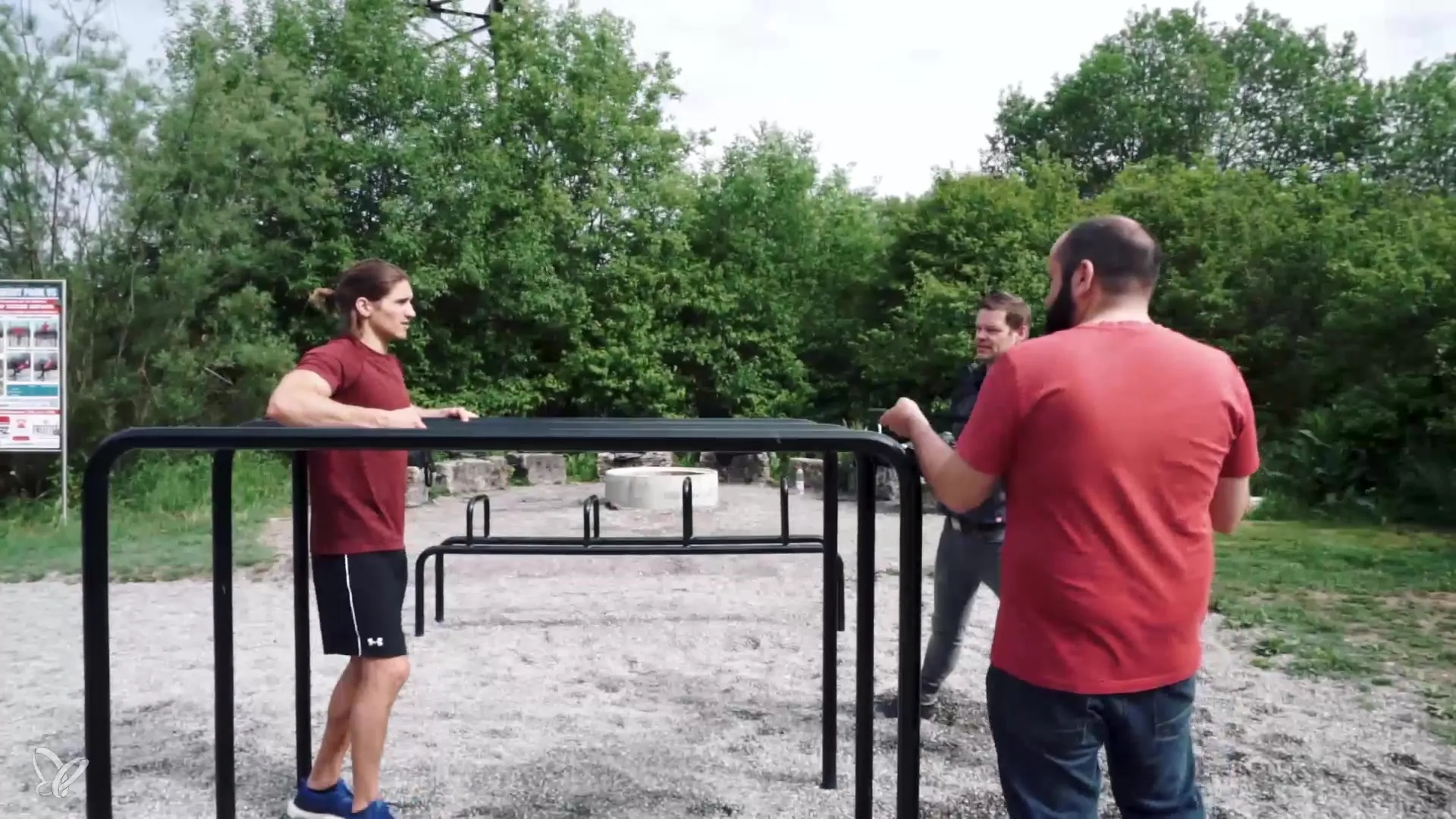
5. Change of perspective
Change the angle from which you take the picture. Changing the perspective can greatly alter the impression of the image. Test different perspectives and focal lengths. Consider working with 35mm or 50mm to better control the background.
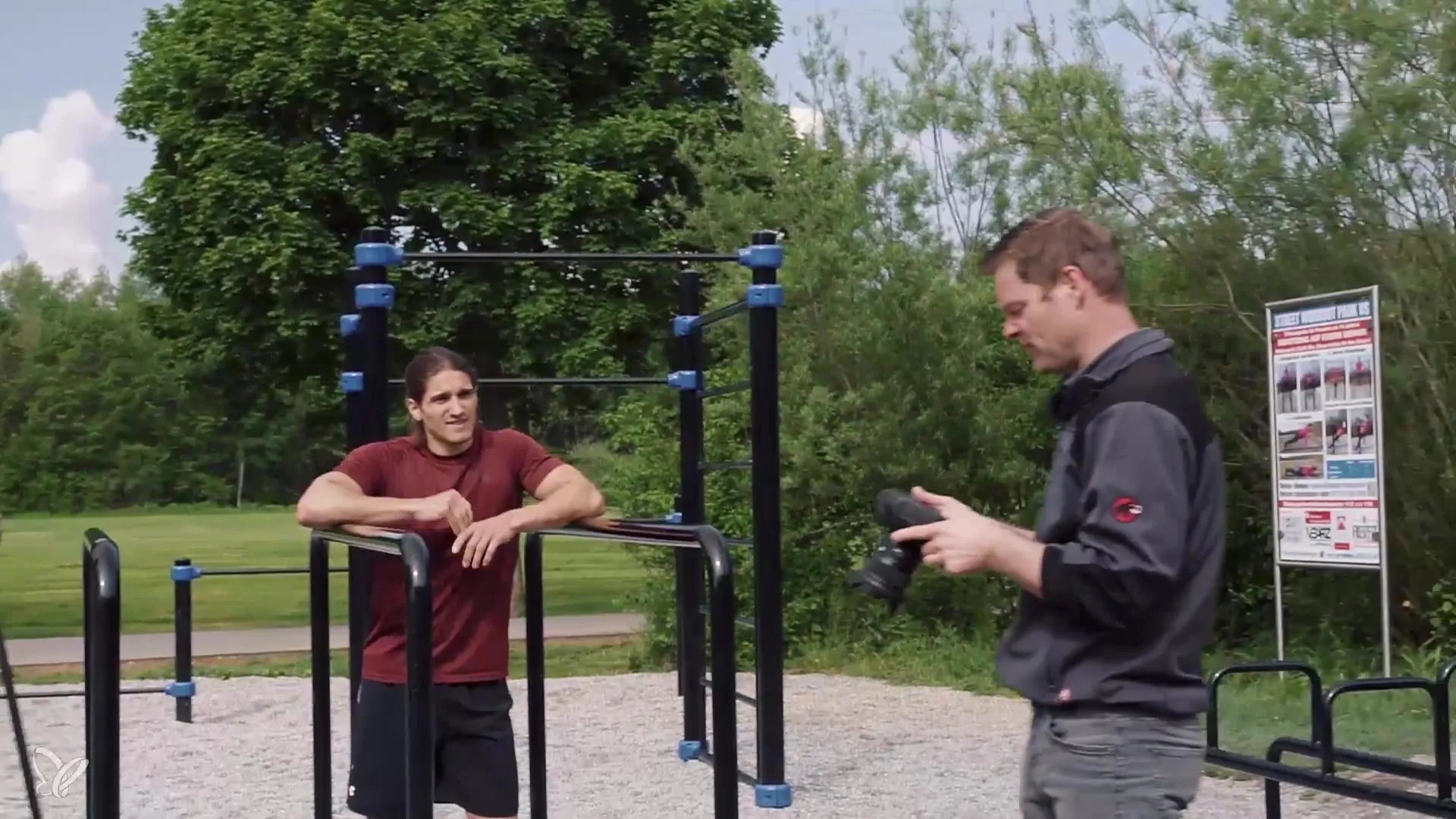
6. Using the right lens
If necessary, use a 35mm lens for initial attempts and then switch to a 50mm focal length to push the background further out of focus. Pay attention to whether the house in the background is distracting or if you want to maintain focus on the subject.
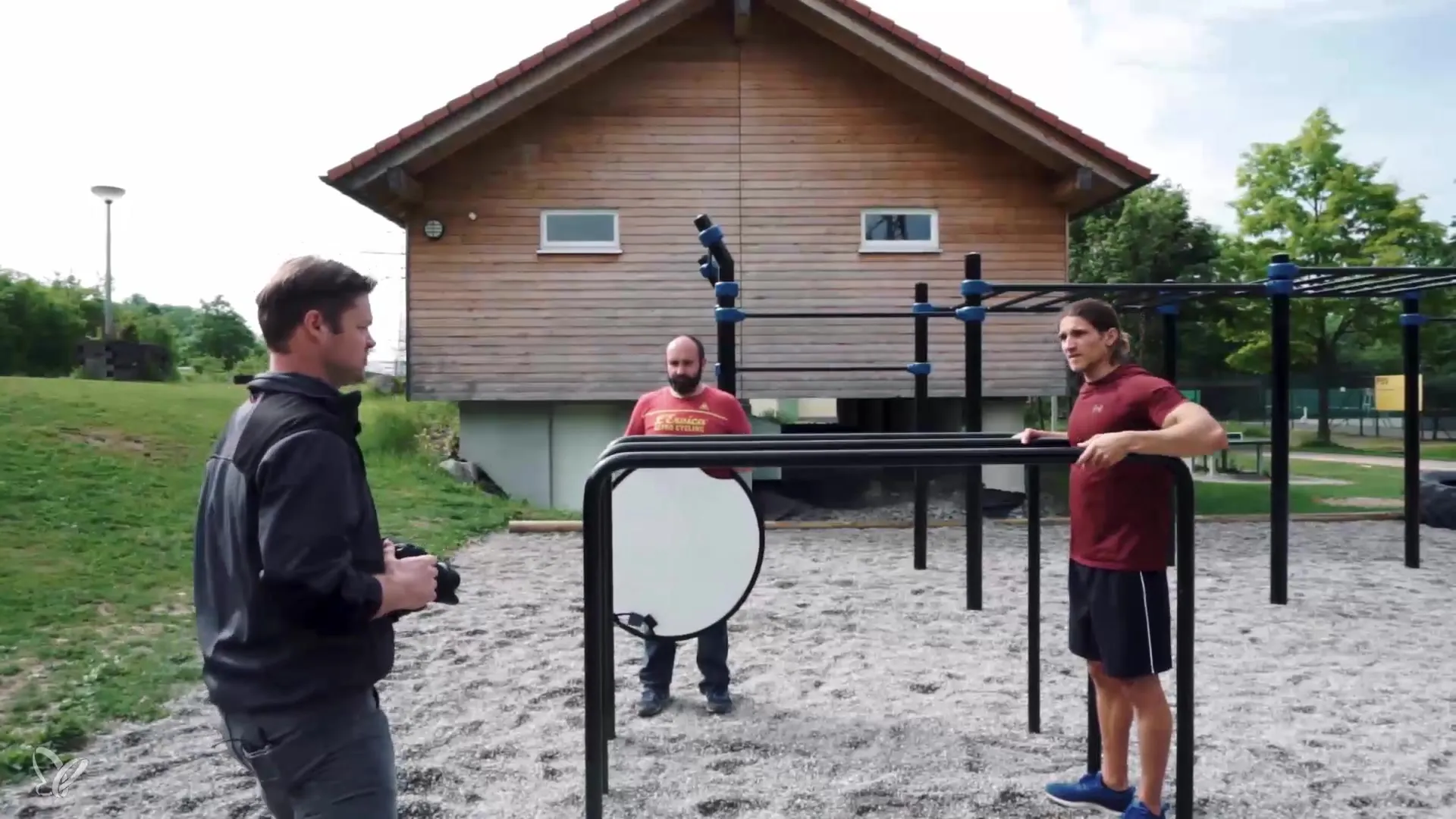
7. Vary lighting conditions with reflector
Experiment with the orientation of the reflector. Hold it flat at times and at other angles to see how the light changes. Note how the lighting conditions affect both the pose and the athlete's emotions.
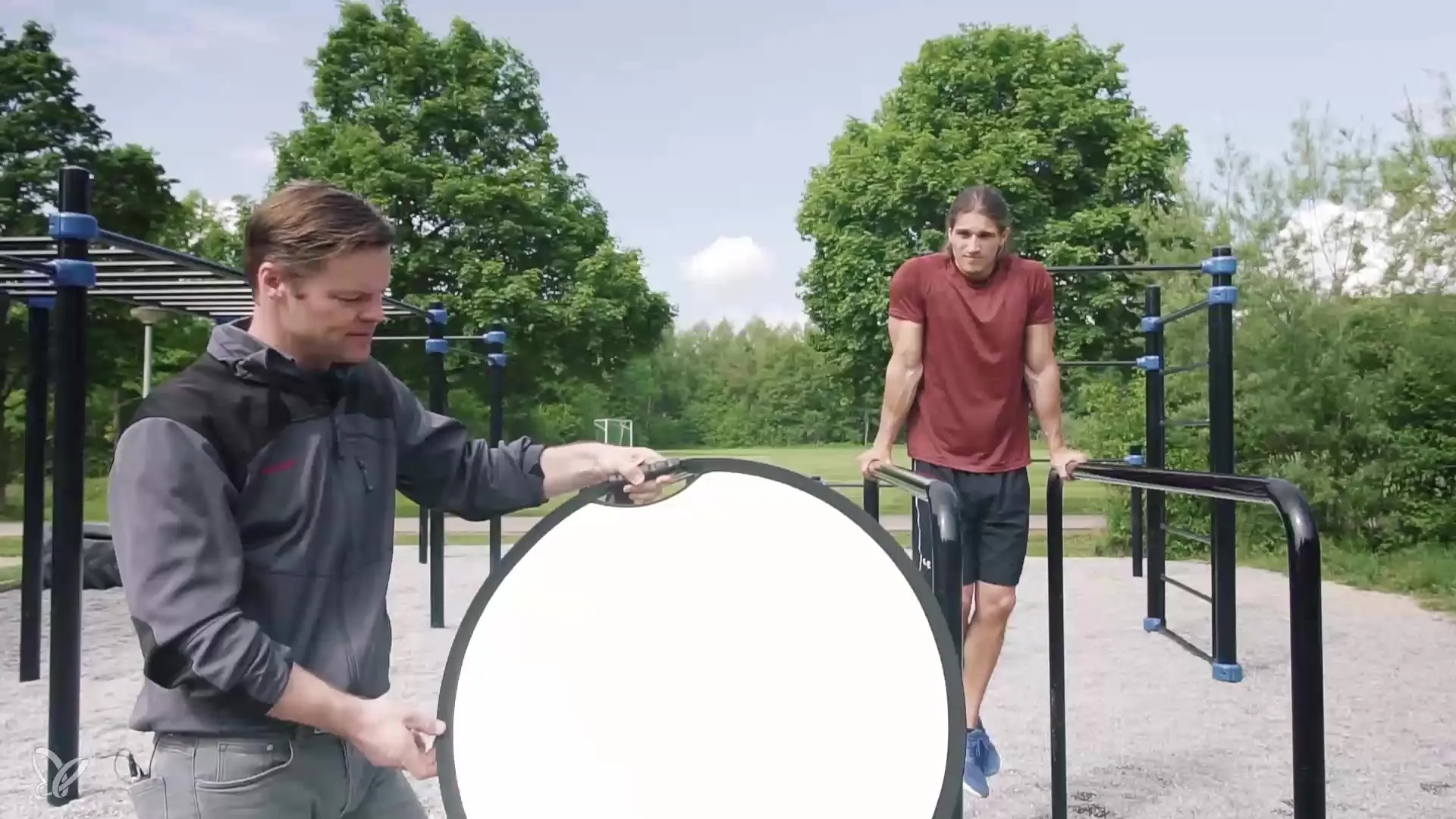
8. Further technical settings
If the image at aperture 5.6 doesn’t yield the desired results, you can change the aperture to 2.8 and see how it affects the background blur.
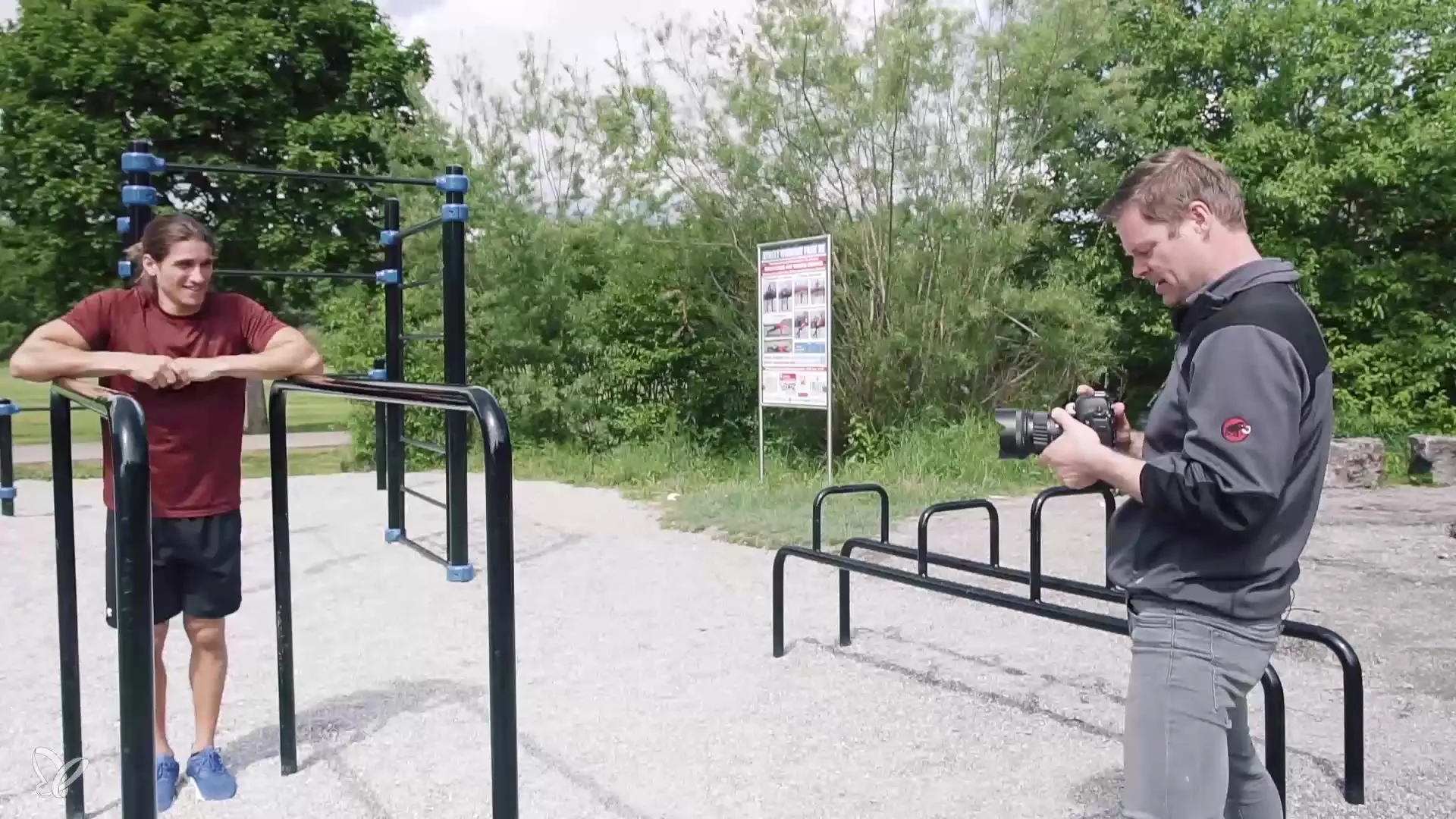
9. Incorporating actions
Ask Elias to hold a certain pose for a while. These exercises encourage him to engage more deeply in his role, enhancing expression and athleticism in the photographs.
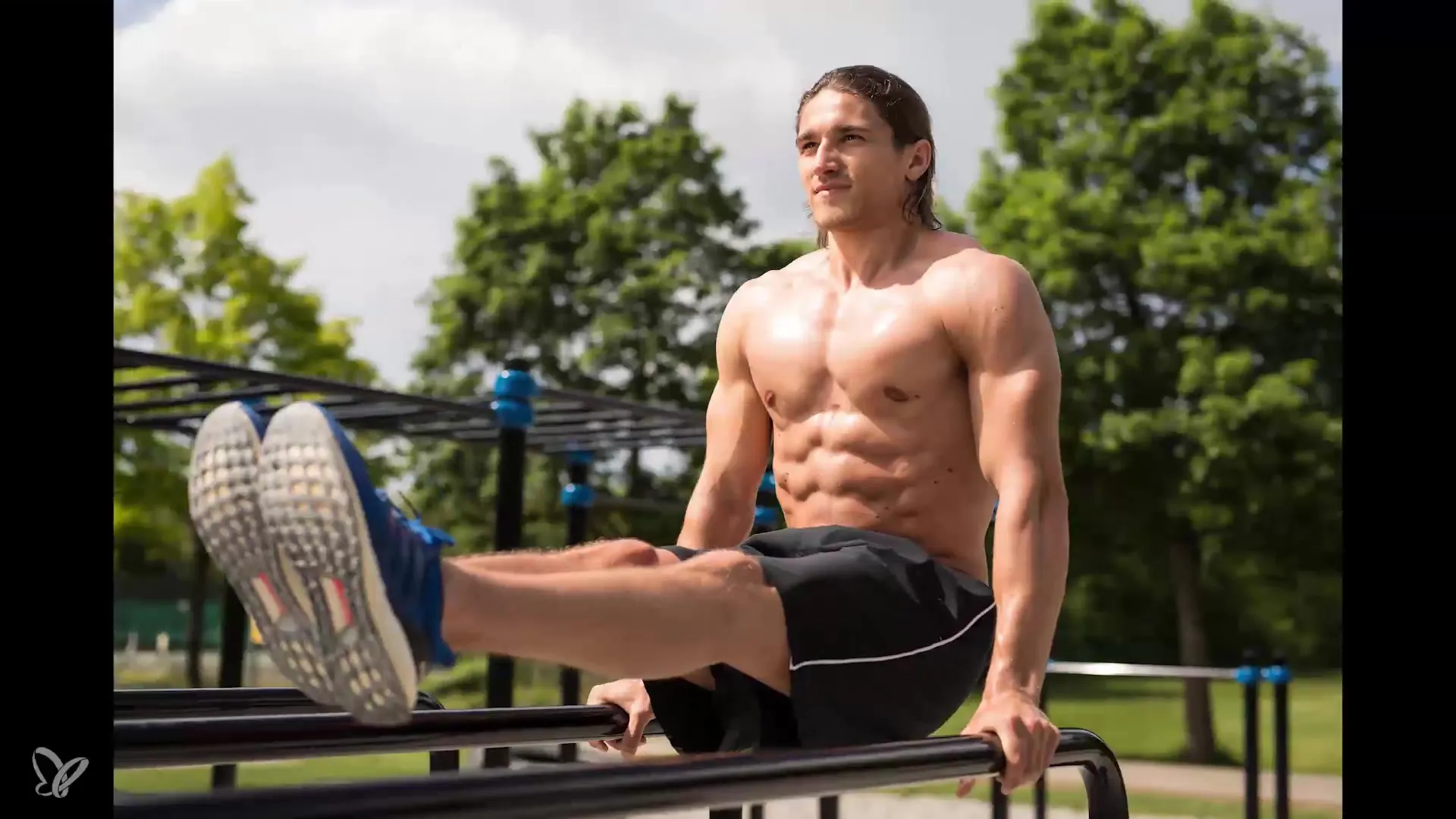
10. Finalizing with different formats
Switch to portrait format and ensure that the focus on the athlete's face remains sharp to create dynamics and intensity.

Summary – Staged Sports Photography: The Use of Reflectors in Sunlight
This guide has shown you the steps on how to minimize disturbances from shadows in sunlight using an Aufheller. By varying the positions of the reflector and using different focal lengths, it is possible to creatively optimize the lighting conditions and create impressive sports photographs.
Frequently Asked Questions
What is an Aufheller?An Aufheller is a reflector that directs the available light onto the subject and thus brightens shadows.
How does focal length affect the photo?The focal length helps determine the background and places the subject in the spotlight.
When is the best time for outdoor sports photography?The best lighting conditions are in the early morning or late afternoon when the sun is lower in the sky.
